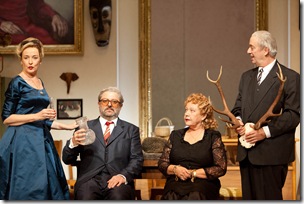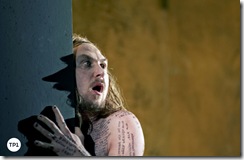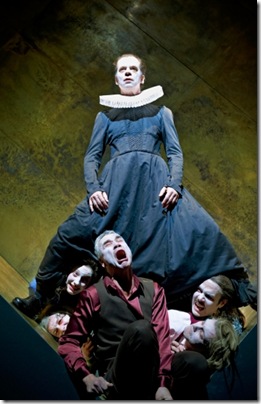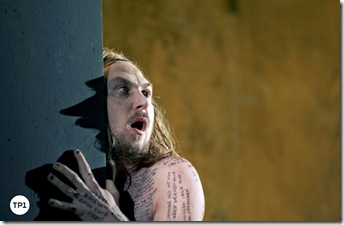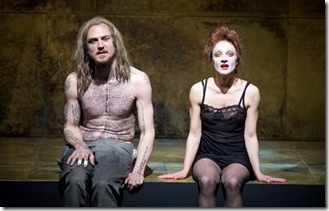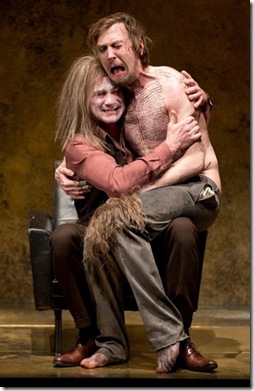Festival TransAmérique: Une île flottante /Das Weisse vom Ei (Floating Island/Egg White), a “bizarre riff” of an uproarously funny French farce.
Guest reviewer Martin Morrow. (Globe and Mail, CBC)
Photo: Simon Halström. Une île flottante, produced by Theater Basel and Théâtre Vidy-Lausanne. Directed by Christoph Marthaler. Adapted from La Poudre aux yeux by Eugène Labiche
Montreal’s Festival TransAmériques, that showcase of the daring and the avant garde, opened its 10th edition last week with a classic French farce.
But wait for it: this was a French farce as deconstructed by Christoph Marthaler, the celebrated Swiss director who turned the Broadway musical on its ear a few years ago with his Meine Faire Dame, ein Sprachlabor – a bizarre riff on Lerner and Loewe’s My Fair Lady, set in a language lab. So his new touring production, Une île flottante/Das Weisse vom Ei (Floating Island/Egg White), which kicked off the FTA at Place des Arts, is no traditional slice of boulevard theatre – although, like the best farces, it’s uproariously funny.
